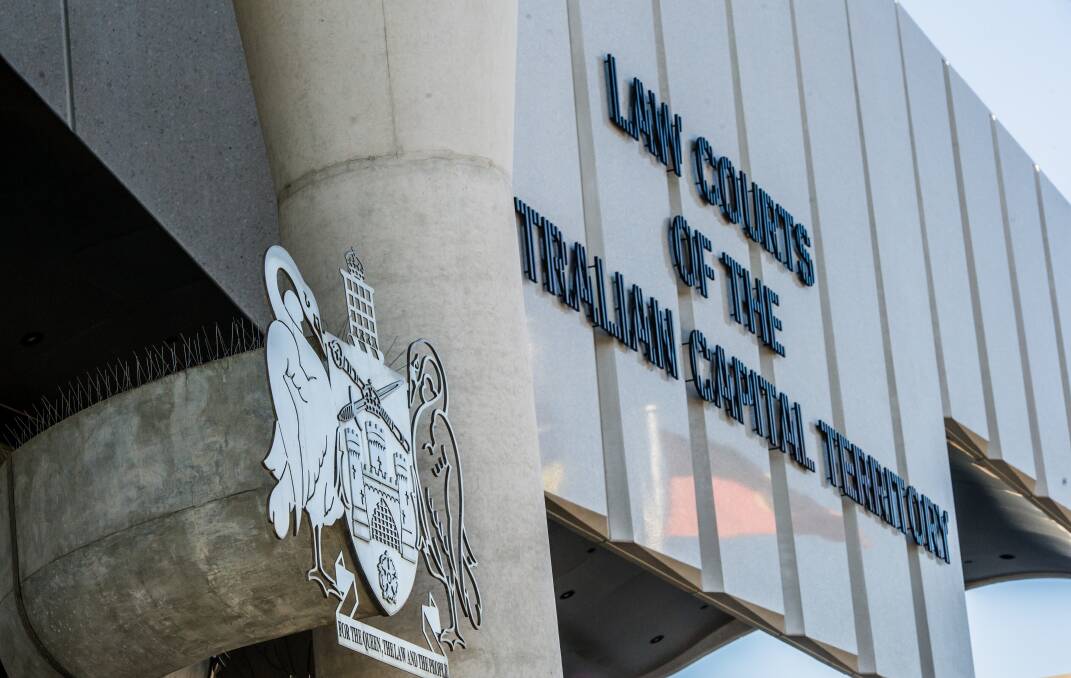The ACT Education Directorate has admitted to a human rights breach and to compromising employees' private information after it inadvertently sent unredacted documents about teacher misconduct to a journalist, court documents state.
Former Canberra journalist Craig Dunlop last November made a Freedom of Information request for the documents related to Canberra schools.
ACT Supreme Court documents state that Mr Dunlop sent the request to the ACT Teacher Quality Institute for documents that "detail reasons why any registered teacher has been issued with a formal warning, had conditions placed on their registration or been de-registered as a result of their conduct".
While the institute is an independent statutory authority, it has administrative arrangements with the Education Directorate regarding some of its services.
On February 1, an information officer with the Education Directorate sent Mr Dunlop a letter setting out a decision - to allow Mr Dunlop only partial access to 95 documents and to refuse access for another 160 records - and a USB storage device containing the accessible documents.
The officer's decision to refuse access was because the information "is contrary to public interest" as defined by the FOI Act.
The officer then became aware that some personal information in the documents sent to Mr Dunlop was inadvertently not redacted when it should have been.
She contacted Mr Dunlop to inform him that he had been given the information in error, that he should not use it and that he should destroy the USB device.
MORE NEWS
- Masks to be ditched in most places in ACT
- Australia joins US, Europe in imposing sanctions on Russia
- Major ACT govt construction project hit by workforce shortages
In his affidavit to the Supreme Court, the ACT Government Solicitor's Avinesh Chand states that Mr Dunlop indicated to the information officer that he would destroy the USB and said words to the effect of "it's not a big deal" and "things like this happen often".
On February 14, Mr Dunlop then sent an email, which was also copied to the Education Directorate's media email address, to an individual from the information inadvertently disclosed.
He indicated he was writing a story about a misconduct matter in which the individual was involved and sought comment.
After emailing Mr Dunlop about the issue, Mr Chand filed an originating claim in the Supreme Court to order that Mr Dunlop and his employer, News Corp, not use the documents and to destroy them.
The claim admitted that the information officer's inadvertent disclosure breached a section of the Human Rights Act.
Further, that the provision was an error, the disclosure was not authorised by the FOI Act and that the information falls within the meaning of privacy in the Human Rights Act.
Mr Chand argued that the defendants' foreshadowed use of some of the information would therefore be unlawful and amount to a breach of confidence.
The matter came before the court earlier this week when an agreement in writing by the parties was tendered.
The orders of terms include that Mr Dunlop and his employer be restrained from using the unredacted FOI documents and that they be destroyed.
The journalist's November request came after one in February 2021 in which the institute decision was varied after Mr Dunlop applied for the ACT Ombudsman's review.
Following the agreement, Mr Dunlop said "the ACT taxpayer has had to foot a significant legal bill as a result of the Education Directorate's administrative bungle".
"It is an affront that this information is kept secret when, for example, in Victoria, it would be freely available on the regulator's website," he said.
An Education Directorate spokesman said the error occurred "because of insufficient checking processes after redactions had been applied and some technological challenges with processing a large number of records and large files".
"The directorate has implemented additional quality assurance steps to the process of preparing records for release for requests such as this, including review of the records following the application of redactions by a team member who has not been involved in the processing," the spokesman said.
"We are also exploring technology solutions to improve functionality and reliability when working with large numbers of records and large file sizes."
The spokesman said the directorate has notified the Office of the Australian Information Commissioner of the breach of the Information Privacy Act 2014 and will work with them in relation to any investigations they choose to undertake.








